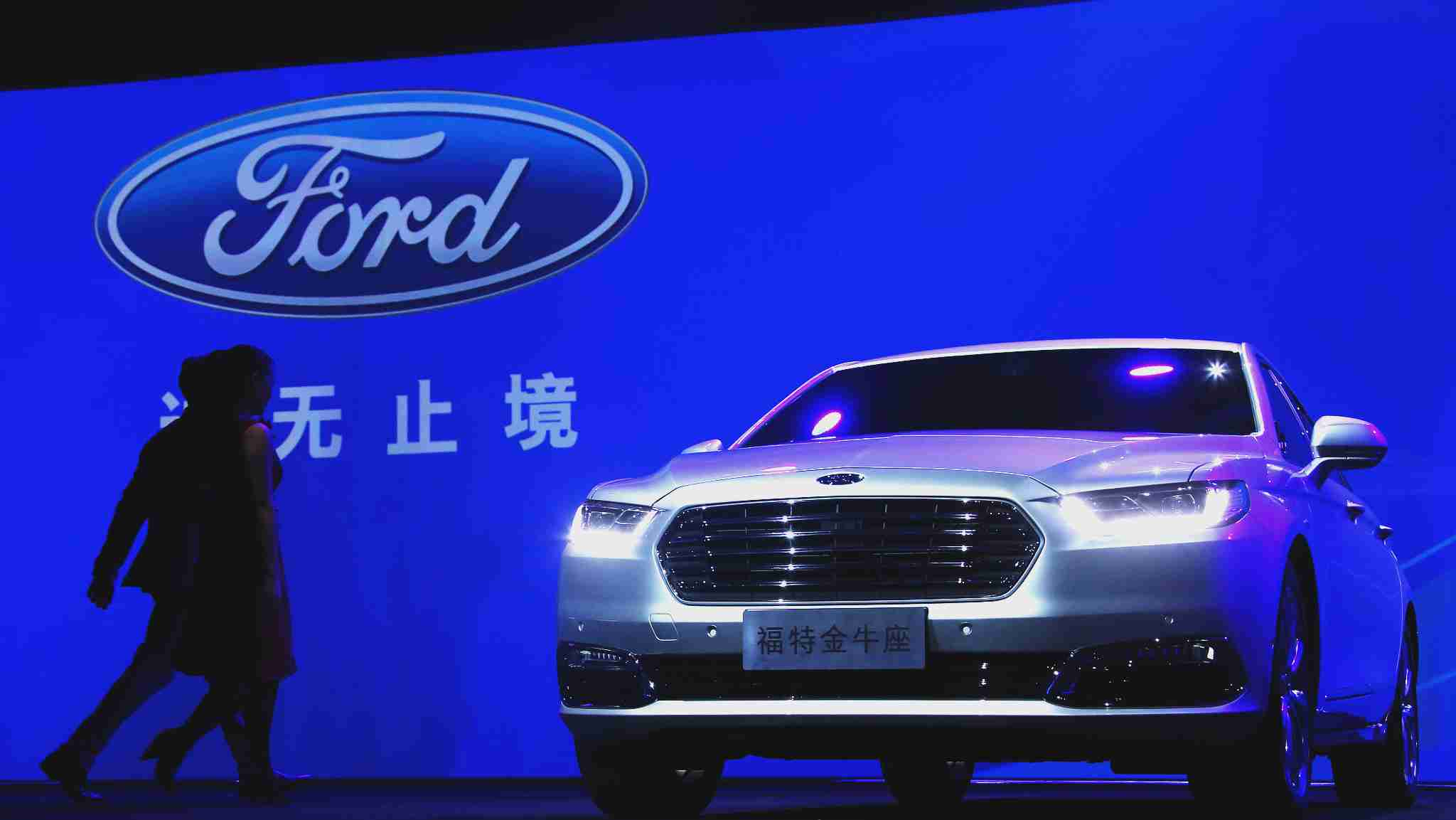
Business
15:08, 25-Oct-2018
Ford to restructure its China business amid sales slump
Updated
14:09, 28-Oct-2018
CGTN

US auto giant Ford announced Wednesday plans to restructure its business in China as a stand-alone entity, amid a slump in sales that has pushed global earnings down 37 percent.
Without a leader in charge of its China operations since January, the company named former Chery chief executive Chen Anning as its China CEO and president on Wednesday.
Chen will assume his role from November 1, and lead Ford in China as a new entity separate from the rest of the Asia-Pacific region.
Ford CEO Jim Hackett said in a statement "success in China is critical as we reposition our global business for long-term success. With today's actions, we are strengthening our commitment to the China market."
In a conference call to analysts, Reuters quoted Hackett as saying "our performance in China clearly has been disappointing. I can assure you the leadership of the company has swarmed the issue."
Third-quarter financial data released on Wednesday showed the Detroit auto giant's earnings fell 37 percent to 991 million US dollars compared to a year earlier.
In China, the company reported a loss of 378 million US dollars in the most recent quarter, with declining sales and ongoing trade tensions putting pressure on the company's performance in the region.
Last month, Ford's China sales fell 43 percent year-on-year, while on Wednesday the automaker's Chief Financial Officer Bob Shanks said the White House's trade tariffs had cost the company one billion US dollars so far this year.
600 million US dollars of those losses came from Washington's decision to place tariffs on steel and aluminum, according to Shanks.
Ford's new China chief Chen will be tasked with turning around an extended run of disappointing sales figures in the world's biggest auto market – in 2017 Ford's sales in China fell six percent year-on-year.
The company has launched initiatives with major Chinese partners like Baidu to develop smart vehicle technology, as well as plans to unveil 50 new vehicles for China by 2025, including 15 new energy vehicles.

SITEMAP
Copyright © 2018 CGTN. Beijing ICP prepared NO.16065310-3
Copyright © 2018 CGTN. Beijing ICP prepared NO.16065310-3